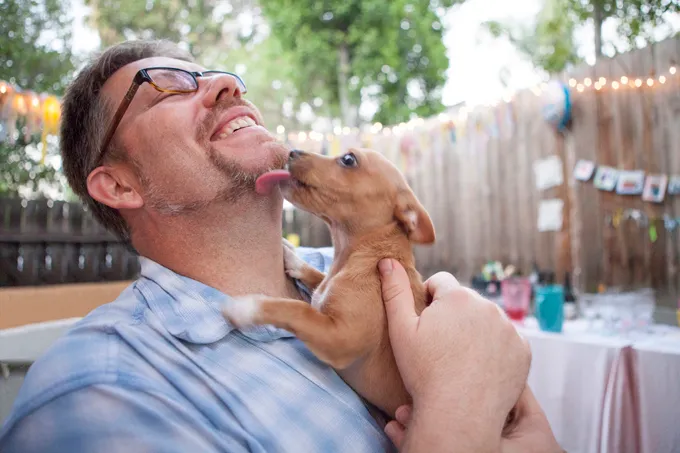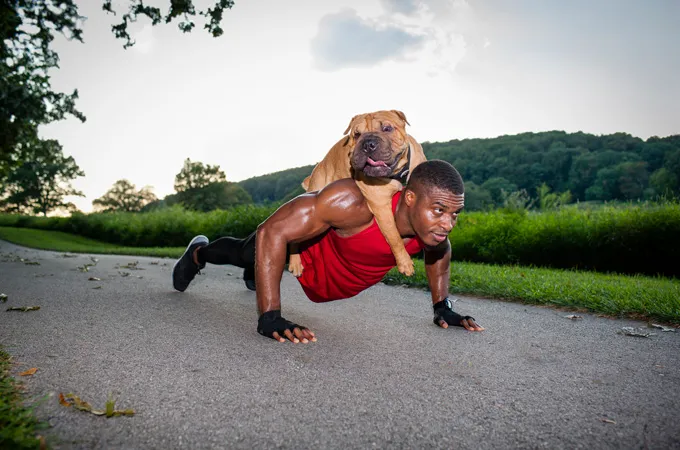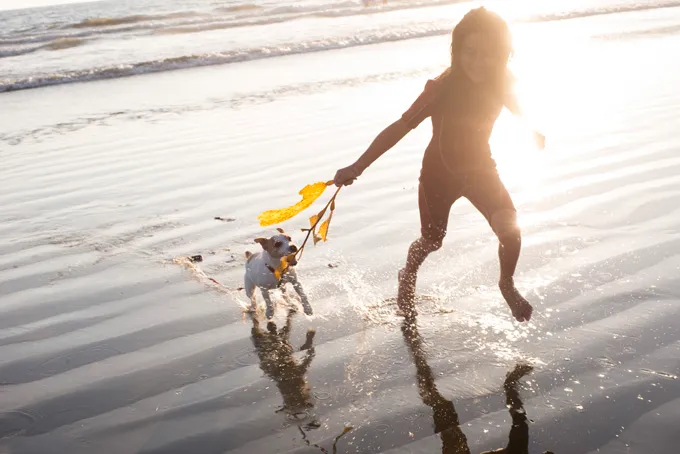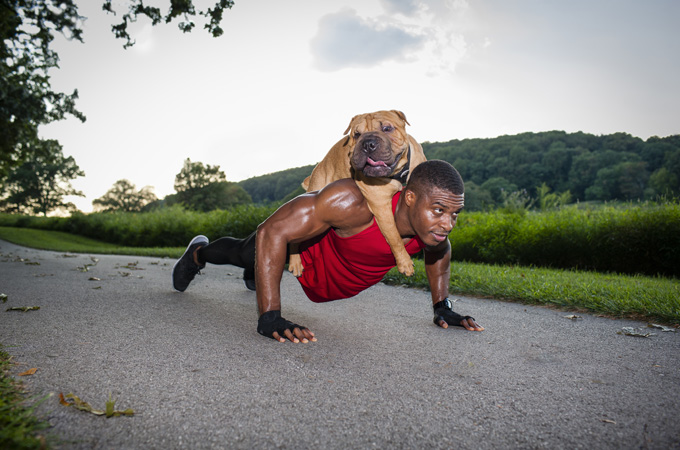
In order to be well-adjusted pets, dogs need both mental and physical stimulation on a daily basis. The desire to “keep busy” is deeply ingrained in the majority of dogs.
Working, hunting, herding and guarding breeds are not the only ones with this need. Even small breeds of dogs retain a certain amount of work ethic–for example, a Yorkie with bows in its hair is still a terrier, and their owners know that these tiny guys still enjoy terrier-type behaviors, such as chasing and digging.
If not given an outlet for their energy, dogs of any size can become destructive, anxious or frustrated, causing numerous behavior problems.
Getting Your Dog The Exercise He Or She Needs

So how much does exercise does your dog truly need? There’s no concrete answer, but enough exercise to feel genuinely tired. Most healthy dogs will benefit from exercise sessions in both the morning and the evening. A safe, fenced area for off-leash exercise is ideal, but if you do not have access to this, snap a leash on your pup and go for a walk.
Unless your dog has a medical condition requiring limited exercise, then make at least one of your dog’s outings an aerobic activity. Playing with other dogs off-leash in a fenced area, swimming, playing fetch or running beside a jogger are all excellent aerobic exercises. Always be sure to keep an eye on your pup to watch for fatigue and make sure your dog has access to cool water and shade anytime they are exercising.
Some people even train their dogs to run on a treadmill. You can start with just a few minutes, and gradually work up to a 30 minute treadmill exercise session. Exercise of this nature will release endorphins which will have an overall calming effect on your dog’s behavior, as well as many other health benefits.
Puppy-Safe Activities

Activities suited for adult dogs may not be safe for growing puppies. Playing is the best choice for a younger pup, whether it’s off-leash with other dogs, playing fetch or other games with their human. Set up play dates with friends so your pup can learn social skills and get some exercise.
Jogging or biking on pavement are not safe exercises for young dogs whose bones are not fully formed. If you have any questions about whether or not a particular type of exercise is safe for your puppy, check with your veterinarian. Always check with your veterinarian.
Keeping Fido sharp
Don’t forget mental stimulation! Training sessions keep a dog’s brain sharp, as well as help develop and strengthen the bond between dog and human. Avoid boring or repetitive activities. Make it fun! Work on teaching your dog tricks like sit and stay along with simple agility exercises. Short training sessions are best, intermingled with play or rest sessions and lots of praise and love.
You can also use dinner time to expend mental and physical energy. Put your dog’s regular kibble in a smart toy designed to stimulate their mind.
Source: Adapted from the ASPCA









